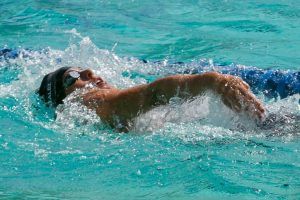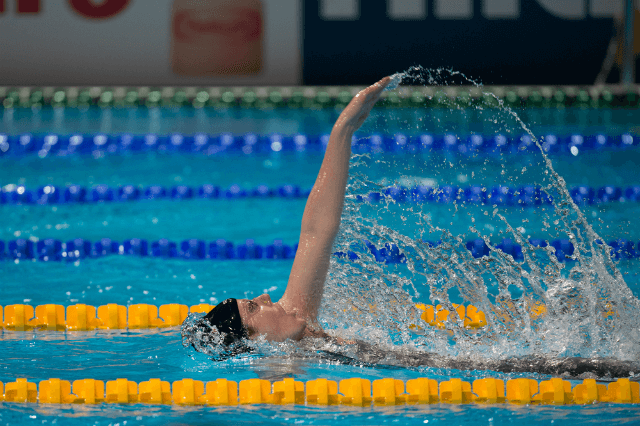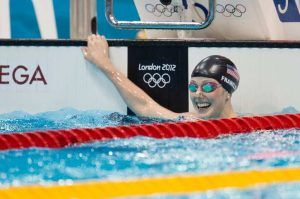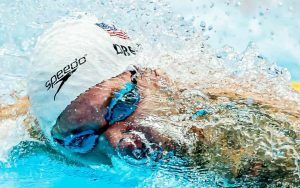
10 Motivational Swimming Quotes to Get You Fired Up
Looking for some awesome swim quotes? Give this list of motivational swimming quotes a look the next time you need to rock and roll in the pool.

The long term benefits of training hard in the pool are easy to list off:
But in a culture of “I want it right noooow” what are the immediate benefits of hard work?
Why should we commit to having an old-school work ethic if it is, in fact, old school?
Why can’t we just be new school and train “smarter”?
(Hint: it’s because if you want to swim really, really fast you need to train hard and smart. Despite what the interwebs and glossed out advertisements might tell you, there is no outsmarting hard work done intelligently.)
That being said, here are a few of the more immediate upsides you experience when you work your butt off at practice:
It’s rewarding to accomplish something that few others have done.
I can remember a few test sets back in the day where swimmers in my lane and group began to fade away, one-by-one, dropping off and dropping out.
The fewer swimmers remained still clinging on, the more inspired to continue I became. The solitary nature of hard work and going further than everyone else is self-propelling.
And because not everyone was able to continue, it showed that not everyone was willing to do it, which made it have value. It was something we could look back on with pride and enormous satisfaction because we went above and beyond what is typical or normal.
There are some fairly critical things we don’t have control over in the water.
How fast the swimmer in the lane next to us swims, for one.
Which leaves us with the things we do have control over.
We can decide to put in a legit effort at practice, or we can decide not to. We can decide to focus on our technique, even when our body is dying of exhaustion of fatigue at the end of a long session of training, or we can decide not to.
Working hard gives you a sense of control that frees you from worrying about what others are doing in preparation to compete. When you know you have done the work, you can step up on the blocks knowing you have done all you can to swim at the peak of your abilities.
When you work hard at completing something you gain a sense of identification and ownership with that thing.
You know the feeling: the first time you do a 200 fly and don’t completely die. Swimming a distance event and finding an extra surge of energy on the back half.
Here is a more complete example:
There is that one test set or workout you never look forward to doing.You know, that one set that seems to just have your number no matter what you throw at it.
You always struggle with it, never go as fast as you’d like, and as a result don’t give it a top-notch effort. But then, one day you figure, “Screw this set,” and put your head down and smash through.
You do well, leave it all in the pool.You might not dominate it, heck, maybe you just survived it.
But walking away from practice that day you probably experienced a weird set of emotions:
A respect and appreciation for the set because it pushed you to new heights. And an identification with it that you didn’t have before.
Because you had to work hard at it, and you gave it an honest effort, it becomes a part of you, which erodes a lot of the trepidation you have of the set.
It’s the same feeling as mastering a new skill.
When something requires our best efforts we identify with it, and it becomes a part of us, something we can hang our hat on.
Later today when coach is writing up the workout on the whiteboard, and you feel yourself wanting to cower away, to hide in the shadows of your potential, remember these three simple reasons for giving today’s session everything you have.
YourSwimBook is a log book and goal setting guide designed specifically for competitive swimmers. It includes a ten month log book,
Learn 8 more reasons why this tool kicks butt now.
Join the YourSwimBook weekly newsletter and get motivational tips and more straight to your inbox. Sign up for free here.

Olivier Poirier-Leroy Olivier Poirier-Leroy is the founder of YourSwimLog.com. He is an author, former national level swimmer, two-time Olympic Trials qualifier, and swim coach.
✅ Free shipping on Orders over $49
✅ Price Match Guarantee
✅ Best selection of gear for training and competition
✅ Fast and Easy Returns

“This is the best book I have ever seen concerning mental training.” — Ray Benecki, Head Coach, The FISH Swim Team


Looking for some awesome swim quotes? Give this list of motivational swimming quotes a look the next time you need to rock and roll in the pool.

Missy Franklin’s book Relentless Spirit details the triumphs and tribulations on the path to becoming an Olympic champion. Here is a review of the book, along with key takeaways, quotes and highlights…

American swim star Missy Franklin captivated the world during her reign as one of the best swimmers on the planet. Here’s how she built her self-confidence going into big swim meets.

If you want to swim faster and maximize your preparation in the water, make sure you are focused on real solutions and not fake problems.

Ever wondered why some swimmers always swim ridiculously fast on relays? Here’s how the kind of motivation you use behind the blocks influences how you perform in the water.

This is the ultimate guide for helping age group swimmers get highly motivated. You are going to learn about some proven techniques and tools that you can start using today to light your motivation on fire. (And keep it burning bright after that first burst of motivation fades away.) If
SITE
SHOP
GUIDES

LANE 6 PUBLISHING LLC © 2012-2025
Join 33,000+ swimmers and swim coaches learning what it takes to swim faster.
Technique tips, training research, mental training skills, and lessons and advice from the best swimmers and coaches on the planet.
No Spam, Ever. Unsubscribe anytime.
